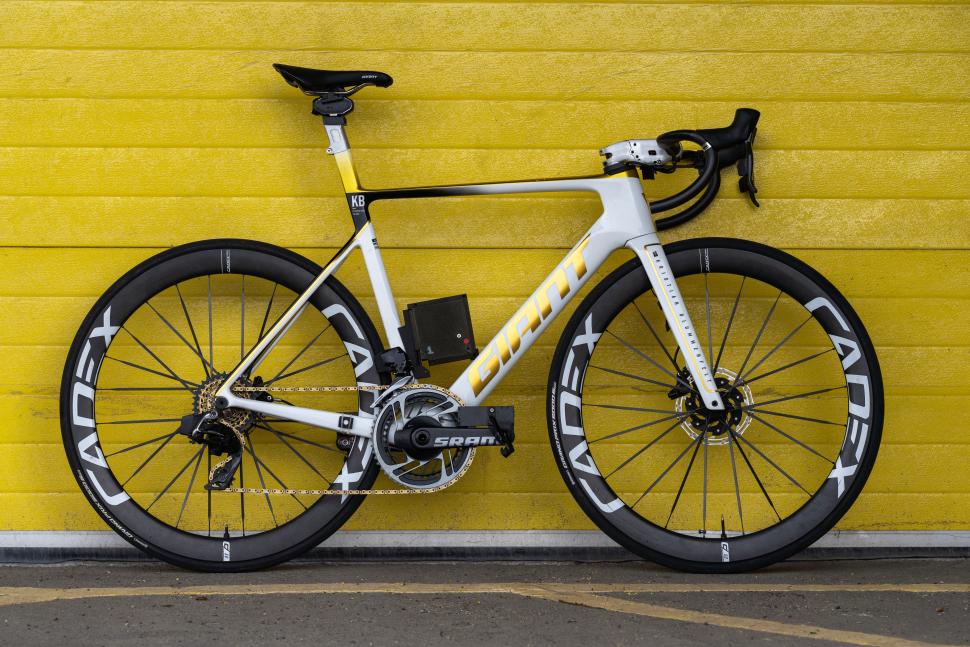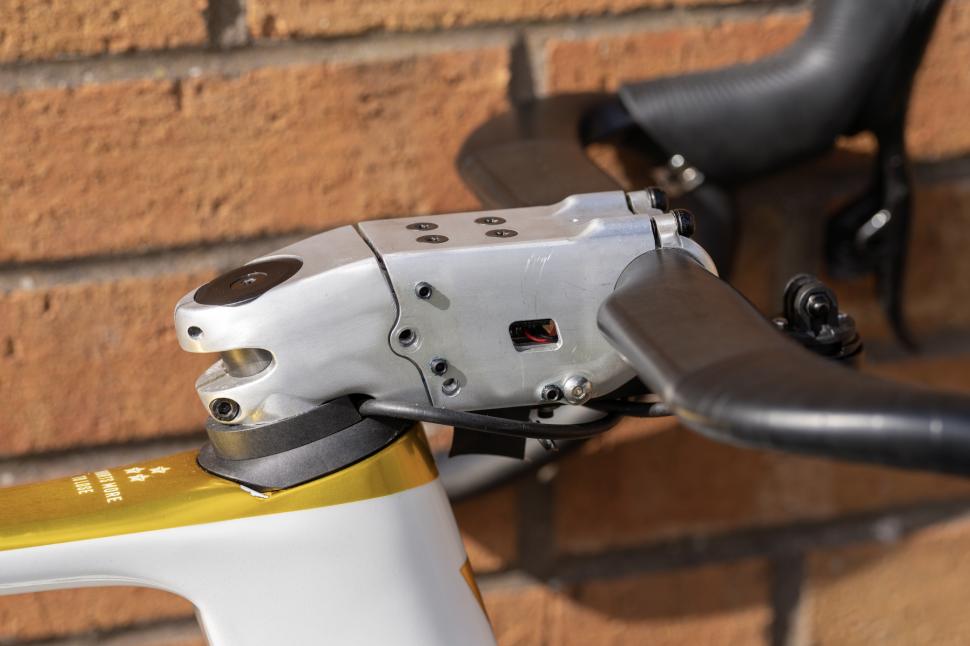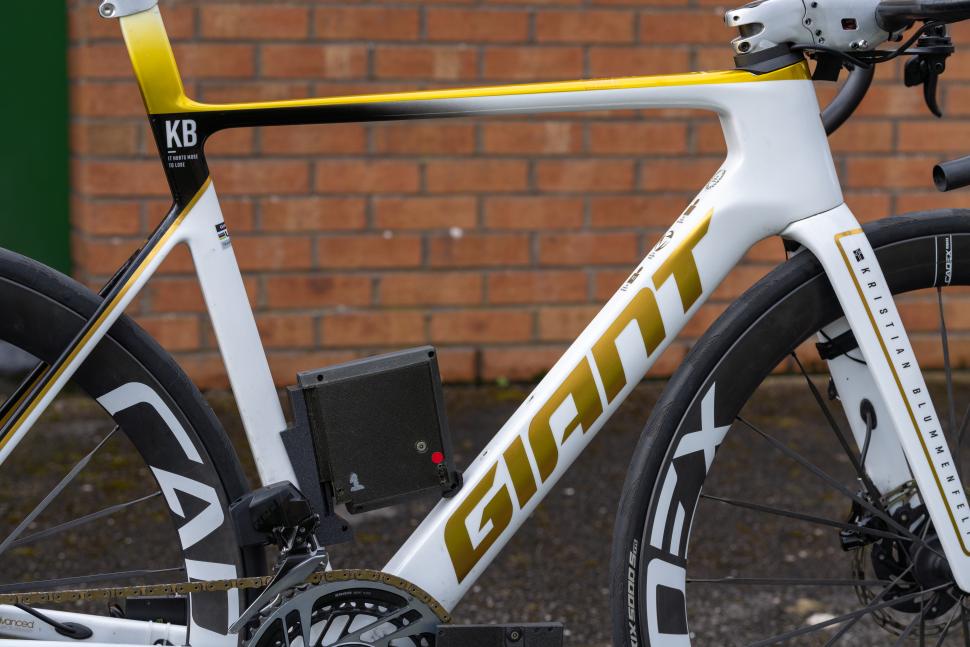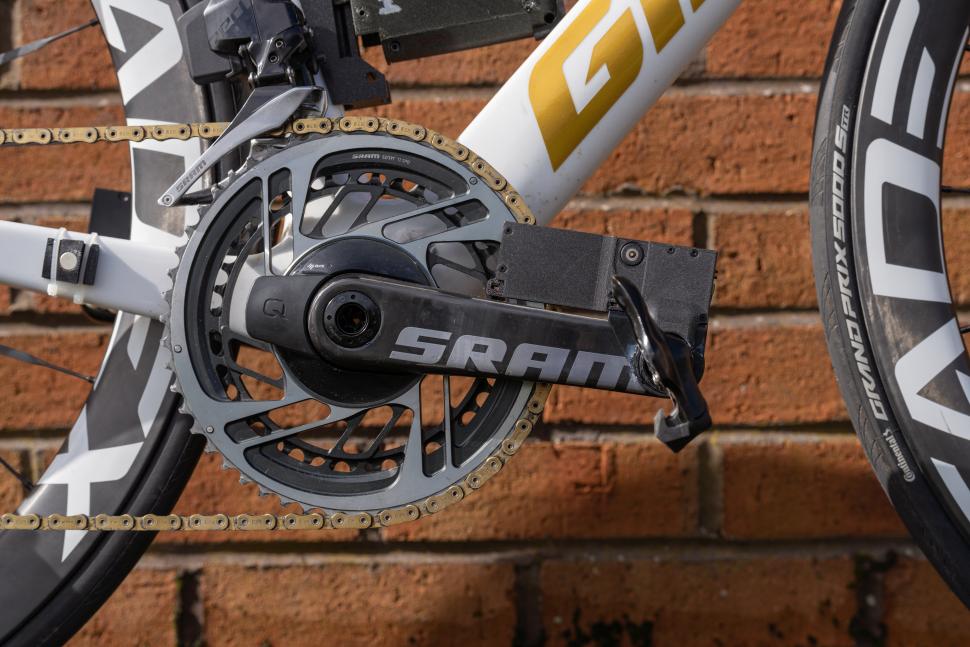Body Rocket, the aero tech start-up known for its real-time aerodynamic drag force measurement system for cyclists and triathletes, has revealed a road bike prototype, which could perhaps – if it enters wider production – make wind tunnels altogether unnecessary for all but the very top elite cyclists.
While Body Rocket has previously worked predominantly on TT and triathlon bikes, the new prototype brings the tech to drop bar bikes. Bringing the integrated CdA (coefficient of aerodynamic drag) measurement system to bikes without aero bars coincides with the approach of the Paris 2024 Olympics, where Body Rocket athlete partner and reigning Olympic triathlon champion, Kristian Blummenfelt, is gearing up to defend his title.
But why is the system so unique? Well, very few of us can afford to rent out a wind tunnel, and previously those have been the go-to solution for precise aerodynamic measurement. Body Rocket, in essence, aims to give you similar insight into how aero you are without the cost, and with data that is personal to you.
That said, Body Rocket isn’t the only brand dabbling with real-time drag measurements. We’ve previously covered Canadian bike brand Argon18’s Notio which hit production in 2019, Velocomp AeroPod which Dave and Mat put to test in the same year, and then there’s Aerosensor, which also successfully entered production and is now available to buy.
With that, it’s safe to say that the market for real-time CdA measuring devices seems to be booming, it’s all due to their practical nature and ability to address something a wind tunnel will never be able to provide.
“When we were designing this, we had to look at the real problem here. The problem is that the rider is very different from what a wind tunnel is designed for—we are all shaped differently and change when we are riding,” Eric DeGolier, Body Rocket’s founder, told us when we first covered the brand’s aero tech.
> Aero for the masses? Body Rocket’s system offers cyclists real-time drag measurements without a wind tunnel
The newly unveiled prototype integrates seamlessly with road bikes, a departure from Body Rocket’s previous focus on time trial and long-distance triathlon sectors. In case you’ve missed it previously, here’s how the system works in short.
To get the measurements, Body Rocket includes sensors in your seat post, stem and pedals. Real-time aerodynamic drag force data from those is then sent wirelessly to a Garmin cycling computer, providing real-time feedback during your ride. This data is very helpful as you can see the impact of different positions, movements and kit while you ride in real-life conditions.
> Why riders like you need to get more aero and wheel weight doesn’t matter
After the ride, the AI-driven analysis software guides you through the process and helps them track their progress over time, without the need for you to become an aero expert, Body Rocket says.
With only road bikes allowed in the draft-legal Olympic triathlon, Body Rocket wanted to develop a system that’d help Blummenfelt perfect his aero tuck on drop bars too., so the brand has equipped at least one of Blummenfelt’s Giant Propel bikes with the new system. It features custom-designed components such as a prototype stem housing the same technology as its aerobar sensors designed for time trials.
The prototype integrates seamlessly with the Propel’s integrated seatpost, and retains the original pedal sensors and a bottle cage-mounted receiver box.
“Aerodynamics is critical in every discipline of cycling, and road bikes have always been part of our plan. With the recent changes to handlebar and brake lever rules, and the new narrow bars made to address it, there is a lot to learn, and with this new prototype, nobody will have as much time to learn as Kristian,” said DeGolier.
Coinciding with the prototype announcement, Body Rocket has also launched its latest funding round on Crowdcube. In 2021, the brand said it’s aiming to launch soon, but it seems we’ll need to wait a little longer. Back then, the brand said the unit price for the system was to be around £1,499 to £1,999, including a power meter.

Dr. Thomas Hughes is a UK-based scientist and science communicator who makes complex topics accessible to readers. His articles explore breakthroughs in various scientific disciplines, from space exploration to cutting-edge research.











